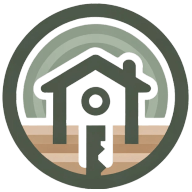Buying a home is a significant financial decision. It's crucial to understand how much mortgage you can afford before you start house hunting. This blog post will guide you through the process of calculating your mortgage affordability. We'll cover the factors that influence your mortgage affordability, the importance of credit scores, the role of down payments, and much more. By the end of this post, you'll have a clear understanding of how to determine your mortgage affordability.
Understanding Mortgage Affordability
Mortgage affordability refers to the amount of loan you can comfortably repay without straining your finances. Several factors come into play when calculating this figure. These include your income, expenses, debt, credit score, and the interest rate on the mortgage.
Your income is the primary determinant of your mortgage affordability. Lenders typically prefer that your monthly mortgage payment, including taxes and insurance, does not exceed 28% of your gross monthly income. This is known as the front-end ratio.
Your expenses and debt also play a significant role. Lenders look at your debt-to-income ratio (DTI), which is the percentage of your gross monthly income that goes towards paying debts. The lower your DTI, the more mortgage you can afford.
Your credit score impacts the interest rate you qualify for. A higher credit score can get you a lower interest rate, which means a lower monthly payment and a higher mortgage affordability.
The Importance of Credit Scores
Your credit score is a numerical representation of your creditworthiness. It's based on your credit history, including your payment history, the amount of debt you have, the length of your credit history, the types of credit you have, and how often you apply for new credit.
A high credit score can significantly increase your mortgage affordability. Lenders view borrowers with high credit scores as less risky, which means they're more likely to offer them lower interest rates. A lower interest rate can reduce your monthly mortgage payment, allowing you to afford a larger mortgage.
Improving your credit score can take time, but it's worth the effort. Paying your bills on time, reducing your debt, and avoiding new debt can help boost your score.
The Role of Down Payments
The down payment is the amount of money you pay upfront when buying a home. It's typically expressed as a percentage of the home's purchase price. The size of your down payment can significantly impact your mortgage affordability.
A larger down payment reduces the amount of mortgage you need to borrow, which can lower your monthly payment and increase your mortgage affordability. Additionally, if you can put down 20% or more, you can avoid paying private mortgage insurance (PMI), which can further reduce your monthly payment.
Saving for a down payment can be challenging, but there are various strategies you can use. These include setting aside a portion of your income each month, selling assets, or using a gift from a family member.
The Impact of Interest Rates
Interest rates play a crucial role in determining your mortgage affordability. The interest rate is the cost of borrowing money, expressed as a percentage of the loan amount. It's one of the main components of your monthly mortgage payment.
A lower interest rate can significantly increase your mortgage affordability. It reduces the amount you'll pay over the life of the loan and lowers your monthly payment. Therefore, it's beneficial to shop around for the best mortgage rate.
Keep in mind that interest rates can fluctuate based on various factors, including the economy, inflation, and the lender's policies. Therefore, it's essential to keep an eye on interest rate trends when planning to buy a home.
The Importance of Pre-Approval
Getting pre-approved for a mortgage can give you a clear idea of how much you can afford. During the pre-approval process, a lender reviews your financial situation and determines the maximum amount they're willing to lend you.
Pre-approval not only helps you understand your mortgage affordability but also gives you a competitive edge when house hunting. Sellers are more likely to accept offers from pre-approved buyers because it shows that the buyer is serious and financially capable of buying the home.
To get pre-approved, you'll need to provide the lender with various financial documents, including pay stubs, tax returns, and bank statements. The lender will also check your credit score.
Using Mortgage Affordability Calculators
Mortgage affordability calculators are online tools that can help you estimate how much mortgage you can afford. They take into account your income, expenses, debt, down payment, and interest rate.
While these calculators can provide a useful estimate, they should not be the sole basis for your decision. They may not take into account all the factors that can affect your mortgage affordability, such as changes in your income or expenses, or fluctuations in interest rates.
It's always a good idea to consult with a mortgage professional or financial advisor to get a more accurate assessment of your mortgage affordability.
Wrapping Up: Calculating Your Mortgage Affordability
Understanding your mortgage affordability is a crucial step in the home buying process. It involves considering various factors, including your income, expenses, debt, credit score, down payment, and interest rate. Tools like mortgage affordability calculators can provide a useful estimate, but consulting with a mortgage professional or financial advisor can give you a more accurate assessment. By taking the time to calculate your mortgage affordability, you can ensure that your dream home won't turn into a financial nightmare.

